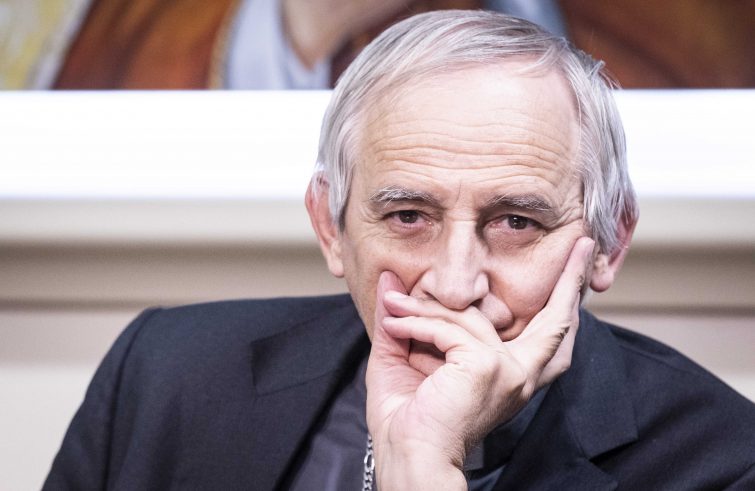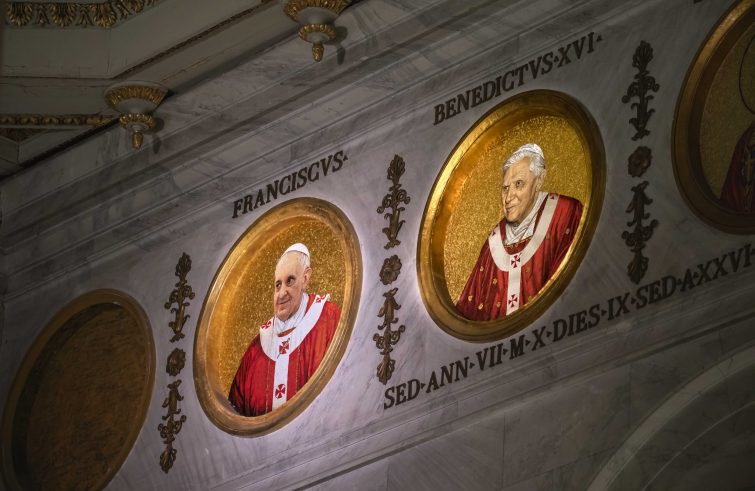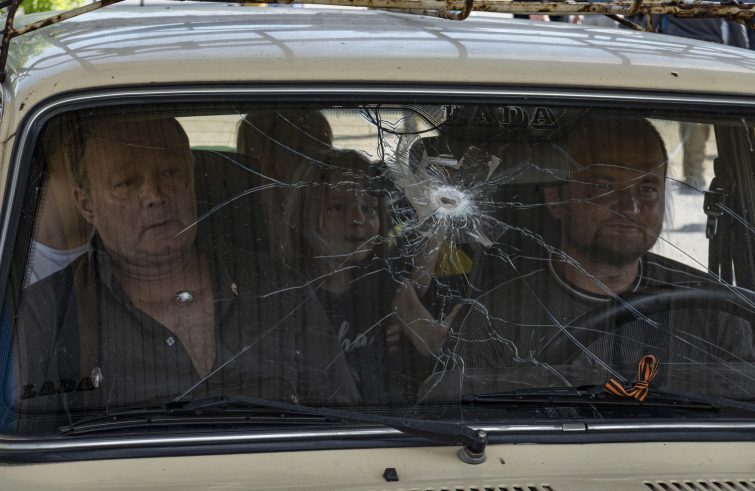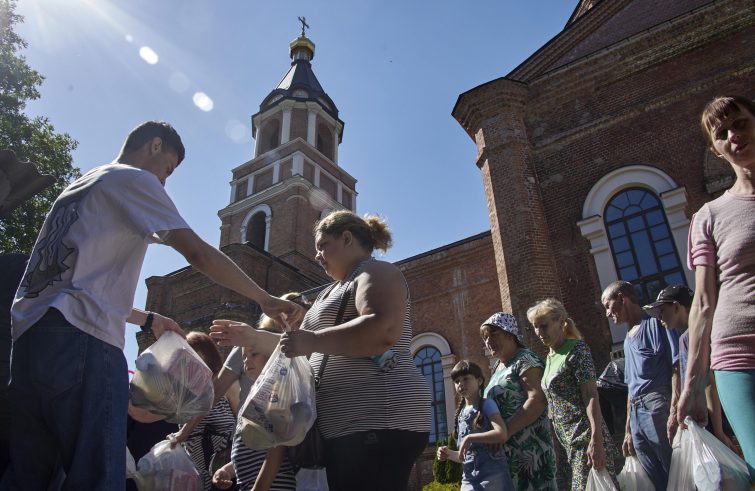
“The Church is a creative minority, but she also is a people. Many people whom we refer to as distant are instead close to us: we are the ones who have distanced themselves, assuming that others were to blame.” SIR interviewed Card. Matteo Zuppi, Archbishop of Bologna, President of the Italian Bishops’ Conference, a few days ahead of the one-year mark of the war in Ukraine and ahead of the 10th anniversary of Bergoglio’s pontificate.
Your Eminence, in your acceptance speech after being appointed president of the Italian Bishops’ Conference, you called for “a Church that reaches out to all, that longs to touch the hearts of all and which, in our world’s Babel, speaks the one language of love. Is this an ambitious mission at a time when the Church has turned into a minority that risks becoming, to some extent, irrelevant?
The Church is a creative minority, but she is also a people. Many people whom we refer to as distant are instead close to us: we are the ones who have distanced themselves, assuming that others were to blame. We failed to accompany them along their journey. We are now encountering suffering, questions and estrangement. But this is good for the Church. The Lord does not condemn, the Lord delivers.
We must learn to see and appreciate all the good that is there for us. We must not be searching for a Church that does not exist. The Lord’s presence is discernible all around us, throughout our contradictions and sins. It is a holiness found in our next-door neighbours.
Is the Synodal Path of Churches in Italy following in these footsteps?
It is. It is also about learning to journey together. In fact, we must not proceed in random order. Making Jesus the focal point of our lives, devoting our attention to the many traveling companions, rediscovering the beauty of the Gospel today, and learning to journey together are the challenges that lie ahead of us. As such, the Church is a synodal Church.
March 13 marks the 10th anniversary of Pope Francis’ election. This anniversary could become an occasion for an overview of his pontificate. How has the Church changed over the past decade and, more importantly, which direction is it headed towards?
The Church moves forward along the path laid out by Benedict XVI and embraced by Francis. The Year of Faith, initiated by Ratzinger and concluded by Bergoglio, marked the handover. His first encyclical “Lumen fidei,” co-written by Pope Francis and Pope Emeritus Benedict XVI, sent out a clear message. Not surprisingly, Francis wished to embrace his predecessor’s words and add his own contribution. This is uncommon in the history of the Church. It is an important sign of continuity. During the Year of Faith, Benedict XVI reflected on a spiritual ‘desertification’, and recalled that in the desert there is an even stronger thirst of water. That was his call to resume the journey, avoiding condemnation and without distancing ourselves to protect our identity by closing ourselves in sheltered hiding spots.
Ratzinger challenged us to walk the streets, and Francis started bringing this invitation to life for us, occasionally pressuring us.
For sometimes we prefer fine statements that we fail to turn into concrete actions. You don’t need many shoes to set out on a journey, making the first steps is all it takes. Drawing on the spirit of the Gospel, Pope Francis helps us embark on this journey. Some people could be disoriented by this approach, but it is a sound disorientation that motivates us to give centrality to Christ.
A few days ago marked the first anniversary of a war fought in the heart of Europe between brother nations. Sometimes it feels that even religions struggle to find meaningful words that foster genuine dialogue. You have consistently championed peace throughout the globe. Do you see any room for a solution to this tragedy and for continued efforts to achieve peace in Europe?
We must not become accustomed to violence and war. We must never renounce the quest for peace. Getting used to it will lead to resignation, and war is thus accepted as the only option. But the true victory is peace. Efforts must focus on undertaking all possible avenues to interrupt the logic of war, initiated by an aggressor. Dialogue and justice, peace and justice must go hand in hand.
He who seeks peace will also find justice.
The way to peace must be sought. And seeking peace never involves complicity with Evil or capitulation.
- (Foto ANSA/SIR)
- (Foto ANSA/SIR)
From Myanmar to Afghanistan, from Yemen to Ethiopia. The over sixty armed conflicts that are taking place around the world today are also defining the geographical landscape of peoples on the move, with 90 million refugees registered by the UN worldwide. Almost 7 million people were forced to flee their homes during the 12-year war in Syria – hit with Turkey by a devastating quake in early February that left more than 50,000 dead. What is the response of the Church?
Ensuring that people are welcomed is the only message possible. Those left without a home must be given hospitality. We must always put ourselves in the other person’s shoes. Those who lost everything and were forced to flee must be welcomed. There is no other option. The right to emigrate was a guaranteed right for all people, before walls were built and fears emerged. This is all the more important for people fleeing war, violence or hunger. Pitting this against our future means not wanting a future.
An attitude of welcome is an open door to the future; closure means losing even our present time.
Social presence is a defining trait of the Church in Italy, with a special concern for situations of vulnerability, which the pandemic has to a large extent exacerbated. In this respect, countless initiatives have been put in place on the ground with continuous concern for social issues thanks to a charity network active throughout Italy. In this regard, what are your expectations in the dialogue with the government?
The Church dialogues with government institutions with respect and a secular approach, but also with the freedom it needs to find solutions to human suffering and address the causes of distress. We need to fight poverty, not the poor. It is necessary to reactivate the social elevator that has been moving downhill. The painful awareness of the pandemic and war should challenge us with urgency, responsibility and forward-looking thrust. The Church will continue offering assistance, providing an immediate response, and she will also remain steadfast in her commitment to ensure that the human person remains the focus of institutional efforts.












